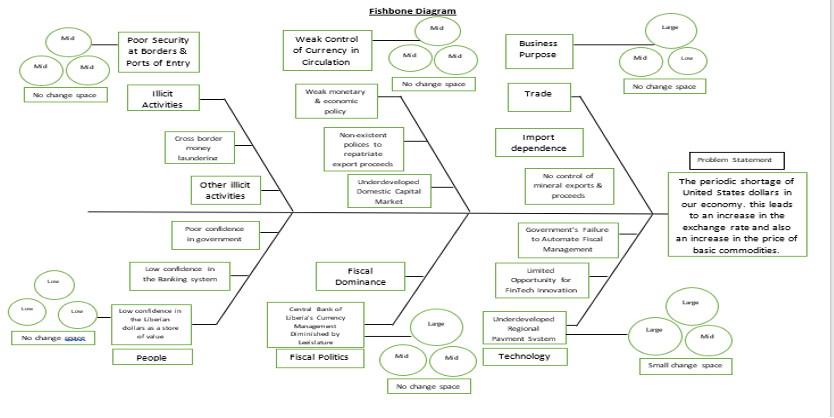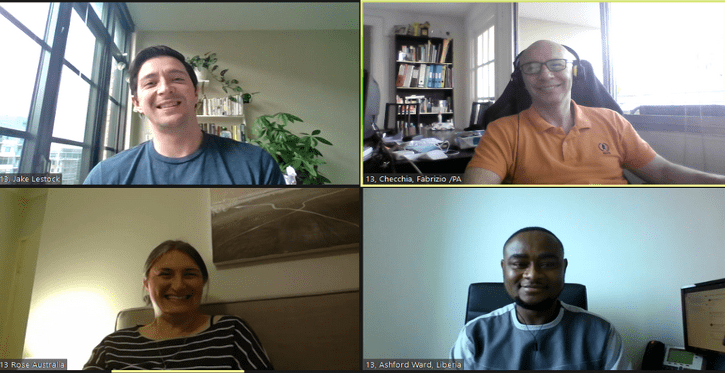Guest blog by Leandro Ward, IPP 2021
My participation in Implementing Public Policy (IPP) 2020 has further deepened my understanding of the numerous public policy challenges that we are faced with on a daily basis. It has also enlightened me on the importance of creating needed policies in the public sector and the successful implementation of these policies for the improvement of this sector. I have also learned to identify challenges and find ways to tackle these challenges.
When I signed up for the course, my expectation was to learn the different tools and techniques available for use in the implementation of policies, especially in the public sector. During my six years in the public sector, I have come to realize the need for both the formulation and implementation of workable policies. As I completed this program (which is my second Executive Education Program) I was convinced that HKS has all the necessary programs to build the capacity and create the leaders needed to take on this tedious but necessary task of improving policy implementation in the public sector.
Some key learnings from the course were the Plan and Control Approach which has to do with unknowns and uncertainty and the Problem Driven Iterative Adaptation (PDIA) which is a step-by-step approach that helps you break down your problems into their root causes, identify entry points, search for possible solutions, take action, reflect upon what you have learned, adapt and then act again. This approach is a problem-driven process that is important in addressing complex problems and very essential in the implementation of policies. Other key takeaways from this course were learning to build teams, the various elements of the delegation process, using the Change Space Analysis which is often novel for many as it requires making assumptions about the behavior of others, constructing and deconstructing problems, and the TOSCA checklist which is a practical way to state a problem. This checklist is to be used by answering the following questions:
1. Trouble: What indicates the current situation is not the desired one?
2. Owner: Who is responsible for its resolution?
3. Success: What will success look like and when?
4. Constraints: What are the binding constraints on developing a solution?
5. Actors: Who are the relevant stakeholders?
The implementation challenge that I am working on is the periodic shortage of US dollars in the Liberian economy which is caused by several factors including individuals taking the physical cash out of the country for business and other purposes. This shortage causes an increase in the exchange rate which also causes the price of basic commodities to increase.

I built an initial team of two other people both of whom agreed to work along with me on my policy challenge. We met the Deputy Governor for Economic Policy at the Central Bank of Liberia (CBL) to present my policy challenge from this IPP course after which he pledged his support to the process. We also spoke with the Senior Advisor for Multilateral Affairs at the CBL who also expressed an interest in the project. Lastly, we spoke to an immigration officer assigned at one of the borders of entry. Once this policy challenge is implemented and there are policies designed to control this challenge, this will make a tremendously positive impact on the economy.
The below photo shows the members of my group 13 that worked on the policy challenge in Liberia.

The group was nicknamed “Wo Tiri nkwa”, which means “luck” in a local Ghanaian language by a member of the group who unfortunately could not complete the program. This team met before every Live Q&A Session in a peer learning group session where we shared our individual experiences as we progressed in pursuing our policy challenge. We also reflected on challenges faced during the week before and a member of the group compiled notes and submitted them on behalf of the group. We also shared acts of kindness, and commonalities including birthdays, vacation plans, and other information.
My motivation came from the impact that this challenge has on the economy and on low-income earners. This approach might change the way I tackle problems because I have gained a wealth of knowledge from this IPP course which can be used to tackle this challenge and many others that we are faced with.
Some years back I was supervising a Corporate Social Responsibility project for my previous employer where we did several projects for communities that were within the company’s operational areas. These projects made huge impacts on the lives of these community dwellers. I will continue using the different tools, techniques, and insights that I learned during the course in policy challenge development as well as in my everyday professional life. The world is filled with many challenges. It is left to you as an individual to identify the one that would make a positive impact in the lives of many and work towards making that challenge a success so that people will feel the impact of your work even in the smallest possible way.
This is a blog series written by the alumni of the Implementing Public Policy Executive Education Program at the Harvard Kennedy School. Participants successfully completed this 6-month online learning course in 2021. These are their learning journey stories.
